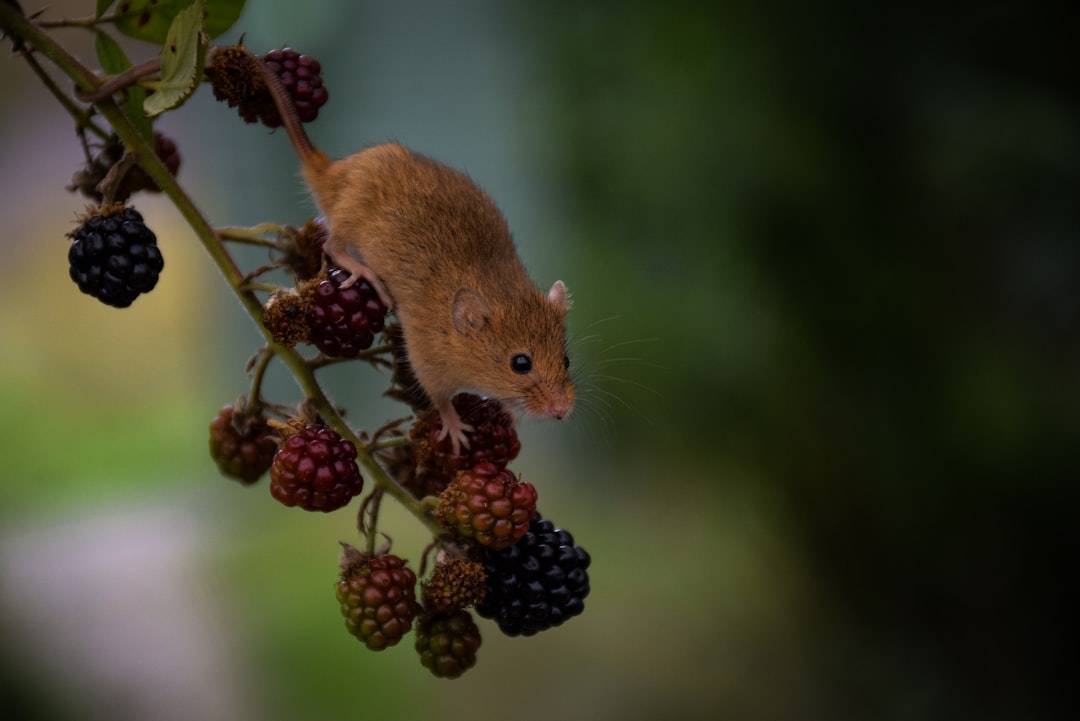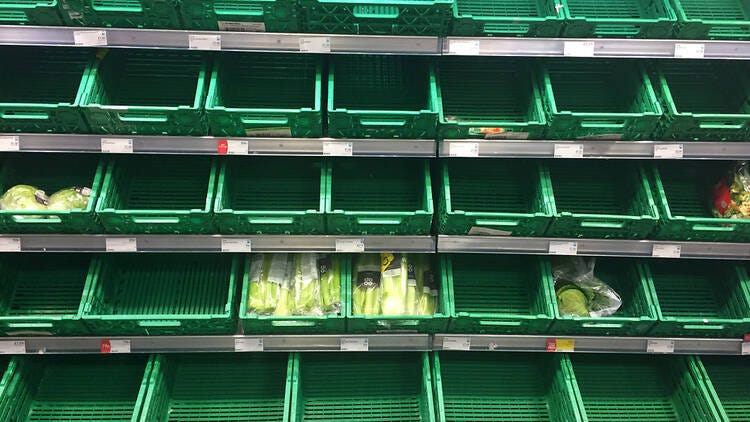Let 'em eat crisps. Only food on the shelves...
A recipe for Baked plum crème

Strictly in the interests of research, for lunch today I crunched through a bag of Wild Boar and Apple Crisps. What do you suppose was the pathway (I’m striving to keep current in the trend for obfuscating vocabulary) that brought people with money to a point where they told investors, “We really believe what the world needs now is Wild Boar and Apple Crisps”?
I’m a poor sleeper and rely on BBC Radio’s World Service at various times throughout the night to tell me a bedtime story. There are some remarkable, moving, accounts which I wish the people in charge of Britain’s current immigration policy were insomniac enough to listen to. But I suspect they sleep the sleep of the dead, which their souls appear to be. The worst time to wake up is when the World Service hands back to Auntie (as the nation’s public broadcaster once was fondly known), and it’s time for one of the shortest programme slots on its schedule: ‘Farming Today’.
I suspect if it were any longer and its issues were offered the exposure given to BBC TV’s investigative ‘Panorama’ programme, we would probably all jump out of our bedroom windows. Not because the reporting is atrocious but because it’s heartbreaking. Day after day, for 15 minutes, I lie in the dark listening to farmers calmly describe without any dramatisation the cliff edge they are on trying to continue providing us with livestock and produce that meet food standards the UK government still grudgingly supports, yet still make some kind of minimum livelihood.
Even if you don’t live within the UK’s broadcasting remit, this is likely to apply to your farmers, too, albeit to a much lesser degree, given you have global trading options no longer open to the British.
When it comes to food, we’re now cosy with words like ‘sustainable’, ‘local’, ‘organic’. But a new descriptive has popped up of late, on ‘Farming Today’ and elsewhere: ‘Regenerative Farming’. Where farming ‘sustainably’ supports the maintenance of a positive ecosystem, ‘regenerative’ farming practices go further. They are designed to improve upon sustainability by enhancing soil biodiversity (more worms), following crop rotation, boosting the ecosystem, and reducing erosion and runoff.
The British government is proud to have launched the Sustainable Farming Incentive, albeit that it was only last year. But Britain’s farmers and global food business have already moved well beyond it, to Regenerative Farming. My 5.45 a.m. radio’s farmers talk about diversifying crops, bringing grazing animals back to pasture, keeping living roots in the soil, not disturbing the soil by ploughing and fertilising it, keeping its surface covered, believing this is the only way to farm for our and their greater benefit. It’s the way forward, they say (except it’s back to how our grandparents and all their ancestors farmed until Agribusiness entered the picture).
Restaurateur and Britain’s food czar, Henry Dimbleby, last week blamed the nation’s “weird supermarket culture” for Britain’s food shortages, criticising ministers for leaving it to supermarkets to formulate food policy, and not including in their meetings with food chains to discuss empty shelves the supermarket suppliers who are locked into suffocating contracts with those supermarkets.
It’s a behaviour unique to Britain. There aren’t photos such as the one above emerging from supermarkets in Europe (although woe betide any politician who suggests Brexit might have a little something to do with it. They no longer dare whisper the word.)
In post-Brexit Britain, farmers no longer receive the EU’s Common Agricultural Policy subsidies. These have been replaced by the UK’s DEFRA (Department of the Environment, Food and Rural Affairs) payments ‘for public goods’. These mean land managers will get paid for improving their soil, carbon sequestration, improving wildlife habitat and flood prevention - a great idea. Except that last year, farming subsidies were cut by an average of 22 percent. This year, payments are going to be cut by 36 percent. (I listen to ‘Farming Today’ so you don’t have to.)
For upland farmers, it’s worse. Under the government’s new-fangled Environmental Land Management scheme, subsidies are 65 percent less than they were under the EU system, and less than payments to lowland farmers. (Like the elms the acronym for that scheme mirrors, DEFRA’s subsidies seem to be suffering from die-back.)
According to ‘Farming Today’, not only is Regenerative Farming likely to provide Britain with more home-grown food, but the UK is one of the most nature-depleted countries in the world. More than one in seven native species faces extinction. More than 40 percent are in decline. Regenerative Farming restores habitat, increasing the bugs and creepy crawlies acting as vital dinner for nature’s other creatures.

A leaked document is said to reveal DEFRA is lagging well behind its official target of implementing green policies to combat climate change. It is in danger of missing a legal deadline to submit a climate plan for agriculture by the end of March.
Regenerative Farming must make sense as a policy. (Cynicism Spoiler Alert:) Big Food Biz multinationals are getting in on the act. So, there is clearly money in it, wouldn’t you say? Nestlé, PepsiCo, Coca-Cola, Unilever, Danone, General Mills, Kellogg's, Mars, Walmart, McCain, Mondelēz and more, are heavily publicising their backing for Regenerative Farming.
Mondelēz’s Marie Eilul-Karamanian, Lead of its Harmony Program which demands farmers practice crop rotation and that legumes are included in the scheme, says regenerative agriculture means fostering the economic well-being of its farming communities. “It’s important our farmers are completely embedded and supporting in that transition to regenerative agriculture.”
Big Food Biz never does anything for love. If Regenerative Farming is good enough for Big Food Biz, why isn’t it good enough for the British government?
If you’ve read this far, you’ve indulged me in a rant. So here’s your reward - an easy but richly sumptuous comfort pudding reminiscent of a Clafoutis.
5 eggs, 3 of them separated
6 tablespoons golden caster sugar or white superfine
300ml/10fl oz whole milk
300ml/10fl oz double/heavy cream
4 drops almond essence
12 large purple plums
100g/3½ oz amaretti biscuits
Whisk 2 whole eggs together with the 3 egg yolks, 5 tablespoons sugar until foamy then add the milk, cream and almond essence.
Preheat the oven to 220C/430F.
Halve the plums and remove their stones. Set them in rows, cut side up, in a baking dish or pan. Splash over 2 tablespoons water then sprinkle over the remaining sugar and bake for 5-10 minutes till the plums have softened but not collapsed.
Put the amaretti biscuits in a freezer bag and crush them with a rolling pin then sprinkle over the plums.
Lower the oven heat to 140C/285F . Pour the cream liquid over the plums and return the dish to the oven for 30-40 minutes, until it has set to a wobble when you shake the dish. Serve tepid with more cream, although hot or cold are delicious, too.
If you don’t want to waste the egg whites, turn this into a kind of Queen of Puddings by adding a meringue topping. Whisk the egg whites until stiff then whisk in 40g/3 tablespoons of caster/superfine sugar and spoon the fluff over the plum custard once cooked. Push it to the edges of the dish with the back of a spoon and spread over all. Raise the oven heat to 180C/350F and bake for 10 minutes more till golden.




A wonderful hard hitting and informative piece. Thanks!
A bit of a rant but what's happening to farmers is not unlike the way the NHS has been treated.